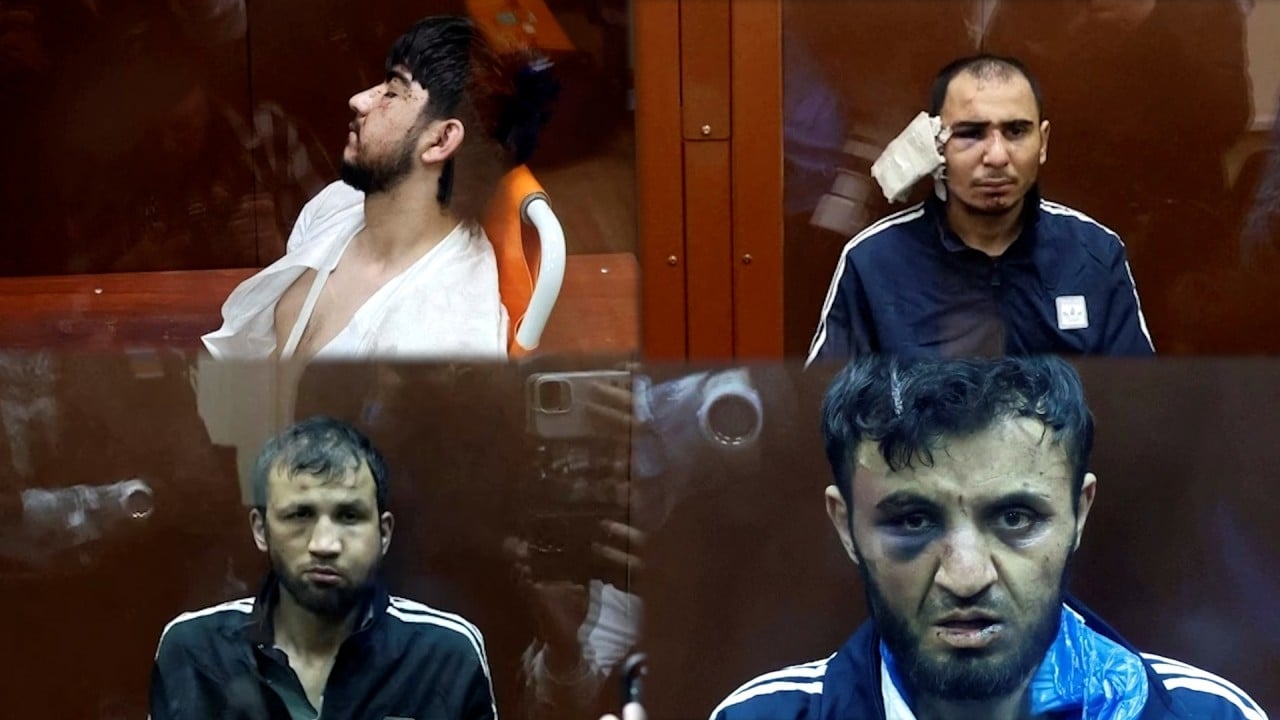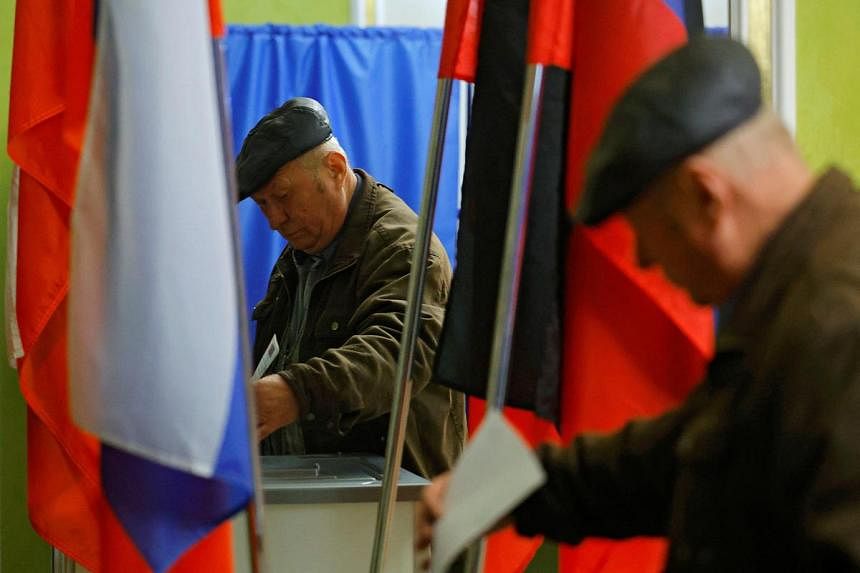
Similarly, the Moscow concert hall attack suggests that even though Russia now appears to be in a significantly stronger position in Ukraine than last summer, the regime may still in fact be fragile. This is despite Putin’s extraordinary political longevity for a quarter of the century.
Last weekend’s tragedy is a sharp blow to the regime, coming so swiftly after Putin’s election win. The Russian president is fast becoming one of the longest-serving world leaders of modern times, alongside Fidel Castro, who managed 49 years as Cuban premier and then president, and Ayatollah Ali Khamenei, Iranian supreme leader since 1989.
Islamic State Khorasan (Isis-K), the affiliate of terrorist group Isis in Afghanistan, has been linked to last weekend’s attack, in which armed individuals opened fire on concertgoers at Moscow’s Crocus City Hall. Isis-K has been fighting the Taliban in Afghanistan, which it regards as insufficiently militant.
Russian special forces are thinner on the ground in Moscow, and even some police have been deployed to the front line of the Ukraine war. So a relatively small number of terrorists was able to cause deadly chaos, and it reportedly took national guard troops more than an hour to arrive from their base only two miles away.
Xinjiang: what the West doesn’t tell you about China’s war on terror
Xinjiang: what the West doesn’t tell you about China’s war on terror
Isis has released a photograph of what it said were the four attackers, as well as footage from the attack. However, Putin has linked the attack to Kyiv, saying the terrorists “tried to hide and moved towards Ukraine, where, according to preliminary data, a window was prepared for them from the Ukrainian side to cross the state border”. He also likened the attackers to “Nazis”, his oft-used code for Ukrainians.
At least part of the Kremlin’s motivation for laying blame on Kyiv could be the need to divert difficult questions over why Russia’s security services failed to take more seriously the Western warnings of an attack. However, there is also a significant possibility that Putin will now use the terrorist attack to double down on Russian war efforts in Ukraine.
Presuming the Russian war efforts continue apace, the most likely scenario in coming weeks is a continued war of attrition. However, one key difference from 2023 is that it is Moscow making gains on the ground in 2024, rather than Ukraine. A war of attrition seems most likely while both sides are still prepared to expend massive resources, although Ukraine’s ability to match Russia depends on an uptick in Western financial support.
While this war of attrition may imply a degree of stability in the conflict, this is not necessarily true, and the level and range of risks actually remain high. This is one reason why the outcome of the war remains unpredictable.
Given the volatility, uncertainty, complexity and ambiguity (VUCA) of the situation, more significant surprises may yet come. This includes the possibility of major nuclear incidents of some kind – for example, “accidents” at nuclear energy sites.
So the conflict will probably last for at least many more months. Even in the most positive scenario for peace, with major fighting ending in 2024 or 2025, there will probably be periodic tensions between Russia and Ukraine for much longer.
Andrew Hammond is an associate at LSE IDEAS at the London School of Economics
EMEA Tribune is not involved in this news article, it is taken from our partners and or from the News Agencies. Copyright and Credit go to the News Agencies, email [email protected] Follow our WhatsApp verified Channel










